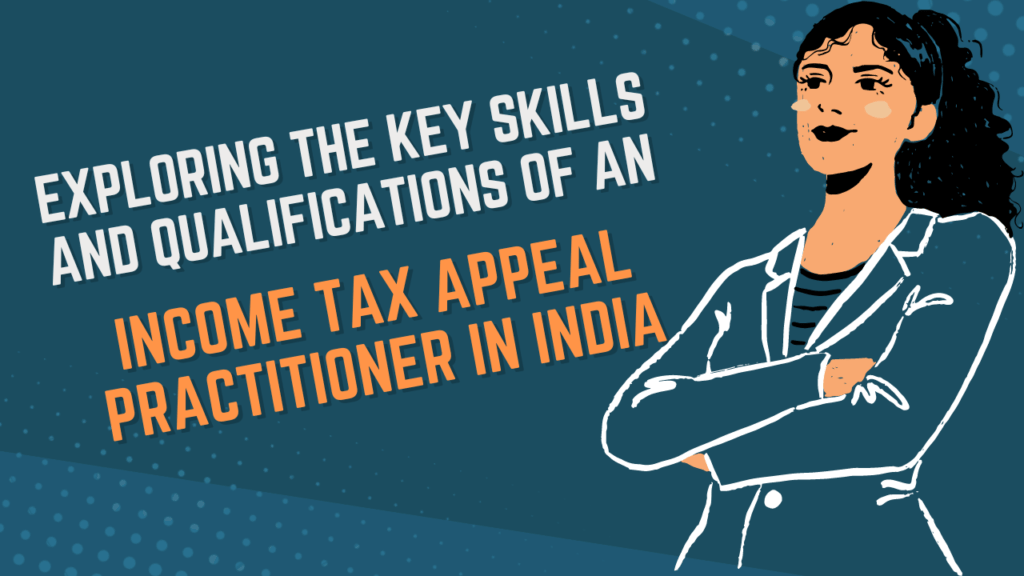Income tax appeal practitioners play a crucial role in helping clients navigate complex Indian tax laws and regulations. These professionals are trained to handle all aspects of tax appeals, including preparing arguments, researching tax laws and precedents, and negotiating settlements. To be successful in this field, professionals must possess several key skills and qualifications that are critical in handling tax appeals. In this article, we’ll explore these skills and qualifications in detail.
1. In-depth knowledge of Indian tax laws and regulations
The first and foremost skill required to be a successful income tax appeal practitioner is an in-depth knowledge of Indian tax laws and regulations. This includes a solid understanding of the Income Tax Act, as well as relevant laws related to indirect taxes like service tax, excise duty, and customs duty. Additionally, practitioners must stay up-to-date with ongoing changes and updates in the tax laws and regulations in order to be able to provide the best advice to clients.
2. Analytical and research skills
Income tax appeals revolve around analyzing tax laws and finding opportunities to argue a tax case in favour of the client. This requires strong analytical and research skills. An income tax appeal practitioner must be able to examine a complex tax issue and determine the best course of action to take. Further, they must be skilled at gathering evidence, researching precedents, and presenting arguments in a compelling and persuasive manner.
3. Communication and negotiation skills
Communication is key in any field, and it is especially important for income tax appeal practitioners. These professionals must be able to communicate complex tax laws and regulations in a way that is easy to understand for their clients. Additionally, they must be skilled at navigating difficult discussions and negotiations with tax officials and tax authorities. Strong negotiation skills are essential in helping clients secure the best possible outcome in their tax cases.
4. Attention to detail
Income tax appeals involve several complex and intricate details, which require practitioners to closely analyze all documents and records. Practitioners must have a high level of attention to detail, as even minor oversights can have significant negative impacts on the outcome of a case.
5. Professional qualifications
Finally, to become an income tax appeal practitioner in India, professionals must have certain professional qualifications. These include a Bachelor’s degree in law, a certificate of practice, and registration with the Bar Council of India. Additionally, practitioners must have hands-on experience in the field, either through internships or working under a senior lawyer.
In summary, successful income tax appeal practitioners require a unique set of skills and qualifications to navigate the complex world of Indian tax laws and regulations. These individuals must possess a deep knowledge of Indian tax laws and regulations, strong analytical skills, excellent communication and negotiation skills, high attention to detail, and relevant professional qualifications. By honing these skills and earning the necessary qualifications, income tax appeal practitioners can help clients to navigate the complexities of tax appeals and achieve the best possible outcome.
